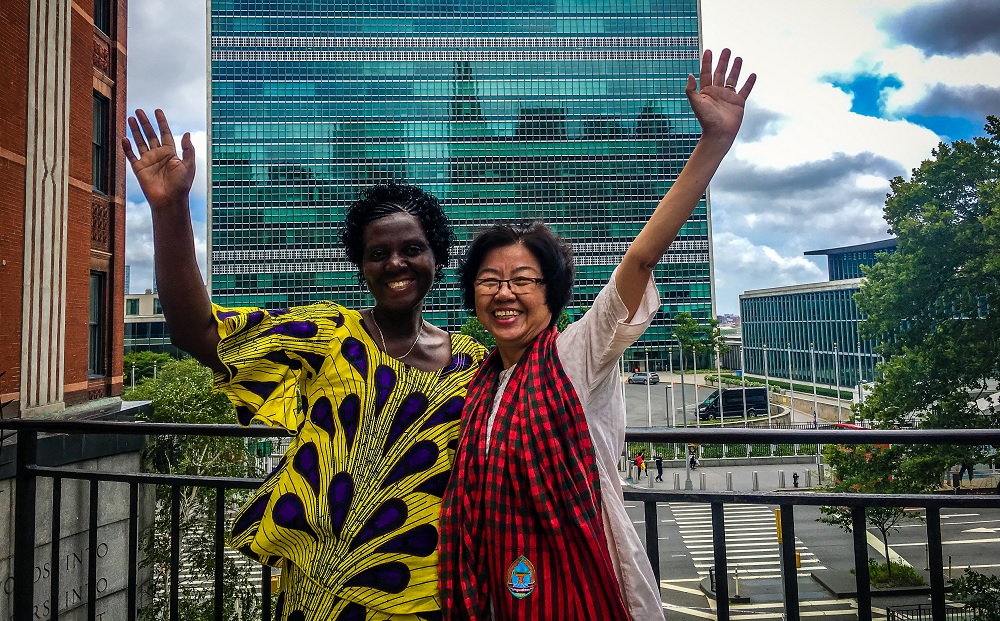
Vanda and Vérène stand outside the United Nations in New York
By Patrick Wilson
Older people invited by HelpAge International are at the United Nations in New York this week, taking part in the ninth session of the Open-ended Working Group on Ageing (OEWG).
Vanda Ou and Vérène Nyirabalinda, older women from Cambodia and Rwanda respectively, will from today talk publicly about their experiences of independence and autonomy, and those of older people in their communities.
This year’s OEWG, which runs from 23-26 July, focuses on two key areas of rights: autonomy and independence, and long-term care and palliative care. Over the past year, HelpAge International conducted a study of these topics, consulting with 450 older people in 24 countries. In the resulting report, Freedom to decide for ourselves, older people speak out about what autonomy and independence means to them, and about the lack of long-term care and palliative care services available in their communities.
Overwhelmingly, older people said they want to lead autonomous and independent lives, but governments and local authorities, local leaders, service providers and family members are preventing them from making their own decisions about their lives.
Older people said they wanted access to care and support services, which would enable them to live their lives according to what is important to them. Despite this, many have no access to, or choice and control over, the care and support services they may need to maintain their autonomy and independence.
Bridget Sleap, Senior Rights Policy Adviser at HelpAge International, said: “Although people around the world are living longer, older people continue to be subjected to ageism, discrimination and denial of their rights. Very few know about or have access to palliative care to support them to live and die free from pain and unnecessary suffering.
“Existing human rights mechanisms do not adequately protect their rights, and states are failing to meet their obligations towards older people. It is vital that older people themselves have a voice at the OEWG, and are part of any discussions about their rights. We are delighted that Vanda and Vérène have agreed to make long journeys to New York to be with us and share their views and experiences directly.”
There are no standards on autonomy and independence, care and support, or palliative care in older age in existing international human rights law. Older people and members of the HelpAge global network have been calling for a new UN convention on the rights of older persons to guarantee these and other rights, including through Age Demands Action campaigns in nearly 50 countries.
Justin Derbyshire, Chief Executive of HelpAge International, is also attending the OEWG and meeting with representatives of member states, funders and partner agencies.
He said: “At a time when human rights are under threat around the world, it is more important than ever to develop universal standards to protect our rights when we are older. More governments, particularly those who champion human rights in other areas, need to participate in the OEWG to ensure its outcomes advance human rights for everyone.”
Get involved
Help us work towards a UN convention on older people’s rights:
- Watch and share our film featuring older people speaking about what the right to autonomy and independence means to them.
- Read and share the Freedom to decide for ourselves report (PDF).
- Share our new infographic timeline on how conventions on human rights are developed and our image explaining the OEWG.
- Watch the OEWG live this week on UNTV and tweet about it with the hashtag #OEWG9.
